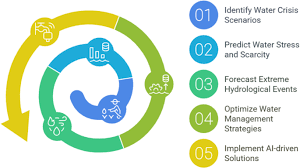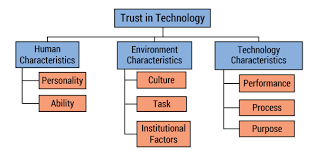As artificial intelligence becomes an integral part of public services, governments around the world face a dual challenge: leveraging cutting-edge technology to improve efficiency and maintaining public trust in these systems. Nowhere is this balance more crucial than in the public sector AI landscape. The emerging discipline of Algorethics—ethical principles applied to algorithmic decision-making—offers vital lessons for building trustworthy and responsible AI for citizens.
The Rise of Public Sector AI
Governments are increasingly adopting AI to streamline operations, optimize resource allocation, and enhance service delivery. From predictive policing and traffic management to automating benefits eligibility and health services, public sector AI is transforming how governments interact with their constituents.
Yet, the deployment of AI in the public realm comes with unique ethical concerns. These include transparency, accountability, bias, privacy, and consent. When mismanaged, public AI projects can erode trust, exacerbate inequality, and invite public backlash.
What Is Algorethics?
Coined by philosopher Luciano Floridi, Algorethics refers to the ethical framework for designing, developing, and deploying algorithms. In the context of ethical government tech, it demands that AI systems respect human rights, ensure inclusivity, and operate with fairness and accountability.
Algorethics emphasizes three key pillars:
- Transparency – Citizens must understand how and why decisions are made.
- Accountability – Governments must be responsible for the outcomes of automated systems.
- Fairness – AI must not reinforce or exacerbate social inequalities.
These principles are not merely theoretical; they are practical tools for improving public trust in government AI.
Lessons from Algorethics Deployments
Several countries and municipalities have begun incorporating Algorethical principles into their AI strategies. Below are key lessons learned from early deployments:
- Co-design with Citizens
Successful deployments of AI for citizens often involve participatory design, where residents help shape how AI is used. For example, Amsterdam’s use of citizen panels to assess algorithmic fairness in housing allocation ensured that community values informed system design. - Open Audits and Algorithm Registers
Cities like Helsinki and New York have created public registries of AI systems used by government agencies. By making code and models open for review, they strengthen transparency and invite community oversight—an essential step in ethical government tech. - Bias Mitigation through Inclusive Data
Bias in AI often stems from unrepresentative or historically skewed data. Deployments that involved diverse datasets, or active interventions to correct for historical injustice (such as Canada’s reconciliation efforts with Indigenous communities), showed significantly more equitable outcomes. - Continuous Monitoring and Redress Mechanisms
Ethical AI governance does not stop after launch. Systems must be regularly monitored for drift and unintended consequences. Moreover, mechanisms for citizens to challenge AI decisions—such as appeal processes or ombudspersons—are critical for preserving democratic accountability.
Toward a Culture of Responsible Innovation
Trust in AI systems is not a given—it is earned through transparency, collaboration, and a genuine commitment to ethical principles. Governments must resist the temptation to adopt AI simply because it’s available and instead evaluate whether it truly serves the public interest.
Investing in public sector AI that reflects the values of equity, justice, and human dignity is not only a technological imperative but a moral one. The lessons of Algorethics point the way to a future where AI for citizens enhances—not undermines—public trust.
Conclusion
As governments increasingly rely on AI to manage complex social systems, embedding ethical standards at every stage of development is essential. The principles of Algorethics provide a foundational framework for creating ethical government tech that citizens can understand, trust, and support.
By learning from early deployments and staying committed to openness and fairness, public institutions can ensure that AI serves as a tool for empowerment rather than exclusion.







